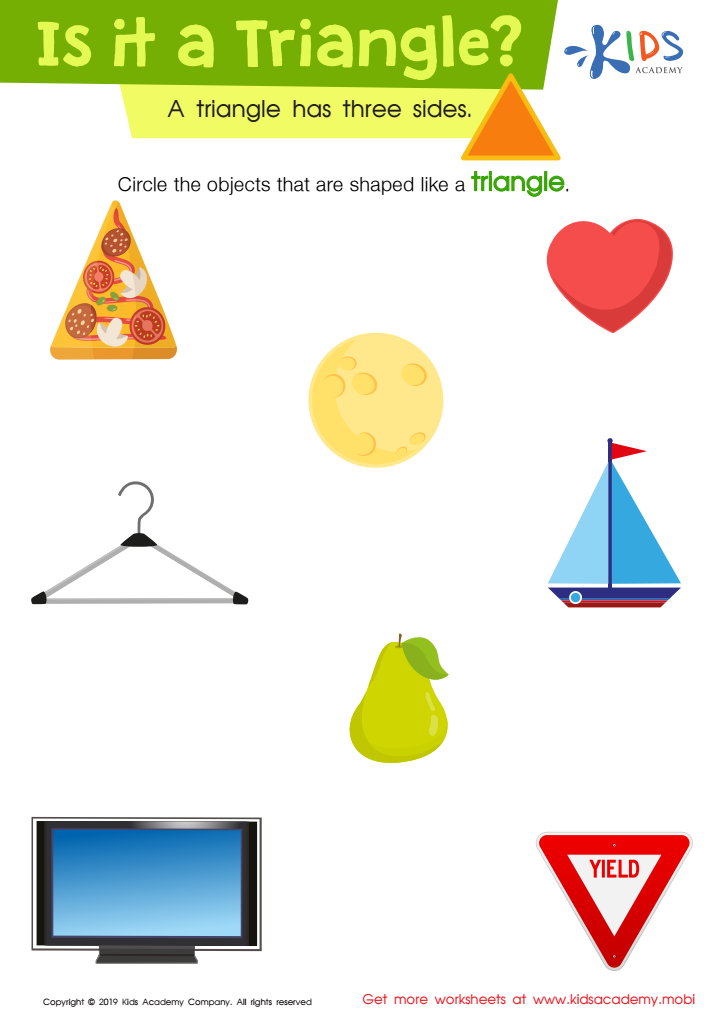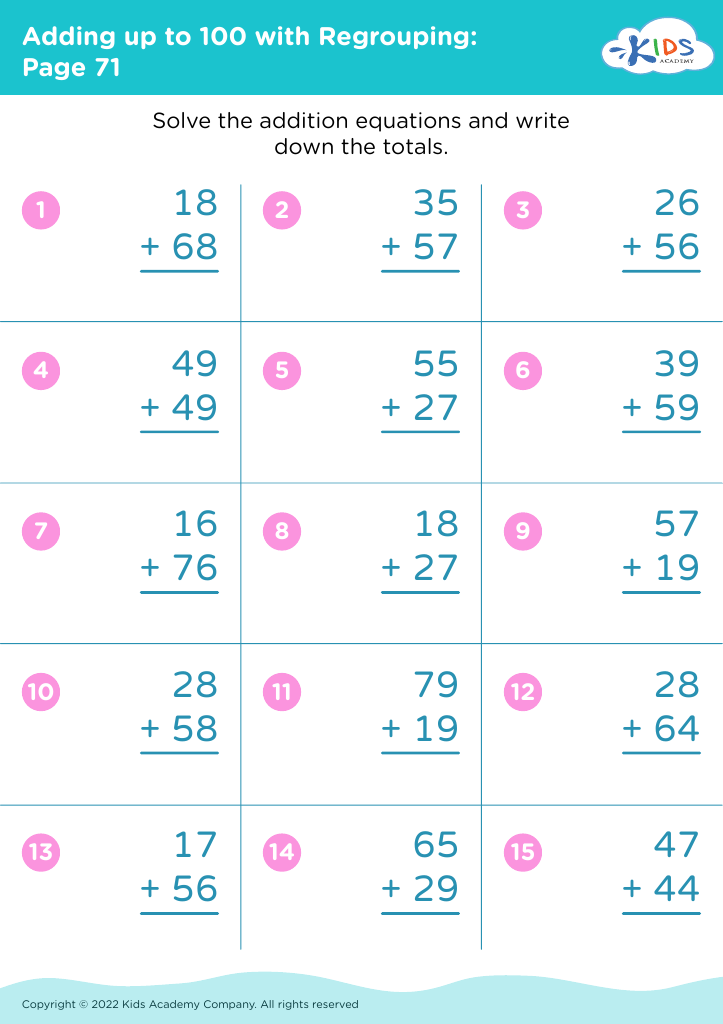Vocabulary Enrichment Math Worksheets for 8-Year-Olds
3 filtered results
-
From - To
Boost your 8-year-old's language skills with our engaging Vocabulary Enrichment Math Worksheets! These thoughtfully designed worksheets combine math concepts with vocabulary development, making learning both fun and effective. Young learners will encounter a variety of math-related terms, enhancing their comprehension and communication skills. Each worksheet features interactive activities that challenge students to connect vocabulary with mathematical solutions, fostering both critical thinking and language mastery. Ideal for reinforcing classroom learning or for at-home practice, our resources cater to diverse learning styles, ensuring every child can thrive. Help your child excel in math and language with our enriching worksheets today!


Is It a Triangle? Worksheet
Vocabulary enrichment in math for 8-year-olds is crucial for several reasons. At this age, children are building foundational skills not only in computational math but also in understanding mathematical concepts. While many students might grasp how to perform calculations, they often struggle with interpreting word problems and utilizing appropriate mathematical vocabulary. This gap can hinder their ability to apply mathematical knowledge in real-life situations and longer-term academic pursuits.
Engaging in vocabulary enrichment enhances a child's confidence and competence, allowing them to articulate their reasoning clearly. When children learn specific terms and concepts—like "sum," "difference," "product," or "quotient"—they develop a vocabulary that helps them grasp more complex mathematical ideas. This also fosters better communication skills, essential for collaboration and problem-solving.
Moreover, strong mathematical vocabulary aids in critical thinking, allowing students to approach problems in multifaceted ways. Parents and teachers should prioritize vocabulary enrichment to cultivate not only proficient math learners but also enthusiastic ones who appreciate the depth and shape of math beyond mere numbers. Ultimately, fostering a robust mathematical vocabulary equips children for success in school and helps them develop a lifelong love for learning.



 Assign to My Students
Assign to My Students





















